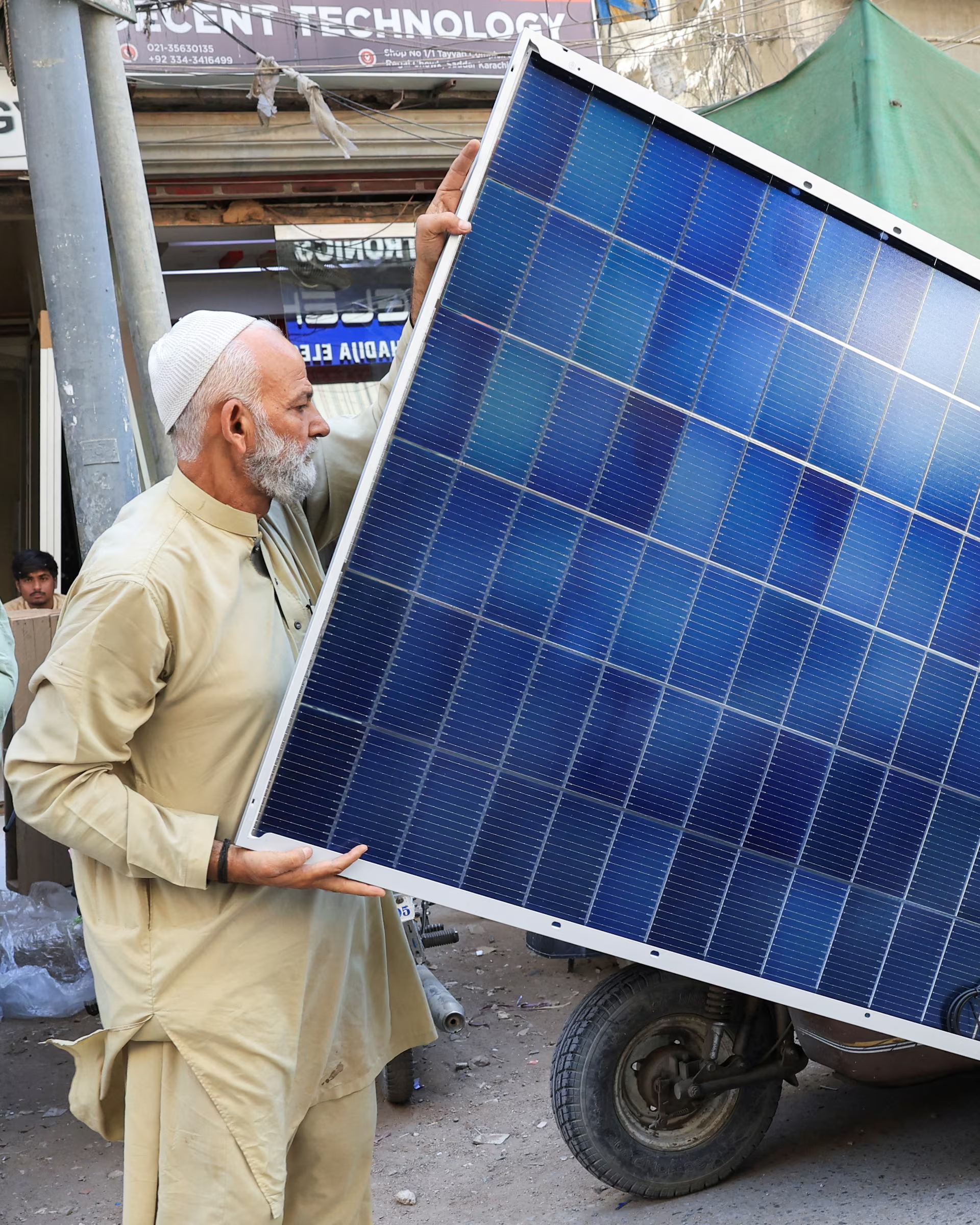Massive Savings Disappear for Working Families
On July 4, President Trump signed the "Big Beautiful Bill," eliminating the 30% federal tax credit for residential solar installations effective January 1, 2026. This abrupt decision cuts an estimated $9,000 in savings for homeowners considering solar energy, disproportionately impacting working families. As electricity prices continue to climb, the removal of this vital financial incentive for solar energy threatens to exacerbate economic inequality and hinder progress toward energy independence.
Middle-Class Households Face Higher Energy Costs
The residential solar tax credit was a lifeline for many middle-class families grappling with rising utility bills. According to a recent study from the Lawrence Berkeley National Laboratory, 44% of households that adopted solar in 2023 earned less than $100,000 annually, with a significant portion relying on this tax credit to make solar installations feasible. By cutting this credit, Congress is effectively locking out these families from the clean energy transition, leaving them vulnerable to spiking electricity costs driven by increasing demand, particularly from AI data centers.

Sunsation Builders | Solar Installation Sevices
Utility Costs Will Skyrocket
As reported by The New York Times, rising electricity demand is expected to surge by 130% by 2030, forcing utilities to expand their generation capacities at significant costs. These costs will inevitably be passed down to homeowners, with estimates suggesting that the average household could see an increase of about $143 per year. The elimination of the solar tax credit only worsens this situation—by discouraging the adoption of rooftop solar, Congress is undermining a key strategy for energy cost stabilization and grid resilience.
Job Losses in the Solar Industry Are Imminent
The repercussions of this policy extend beyond homeowners to the solar workforce itself. The Solar Energy Industries Association warns that the elimination of the residential solar tax credit could lead to the loss of 62,000 jobs by the end of this year, with projections of nearly 200,000 jobs disappearing in 2026. The solar industry, which supports over 100,000 jobs nationwide, largely consists of small, local businesses. A survey conducted by EnergySage found that 92.3% of solar installers believe that cutting the tax credit would severely impact their operations, with many considering exiting the industry entirely.

Breaking news coverage: lawrence berkeley national laboratory study
Impacts on Future Solar Projects
The legislation not only affects homeowners but also introduces new restrictions for third-party-owned solar projects, such as leases and power purchase agreements (PPAs). While these projects can still claim the 30% tax credit, they must meet stringent requirements regarding domestic sourcing of components, which could inflate costs and create barriers to entry for smaller firms. Homeowners who opt for these financing arrangements will find that while they may reduce upfront costs, the long-term savings will be diminished as ownership of the system rests with the solar company.
Rising Barriers to Clean Energy
The end of the residential solar tax credit signals a fundamental shift in federal energy policy, moving away from supporting renewable energy sources that combat climate change and promote economic equity. For millions of American families, the next six months represent a precarious window to access the last remnants of this crucial financial incentive. The decision to cut the credit serves as a stark reminder of the ongoing struggle between progressive energy policies and a regressive political agenda that prioritizes short-term gains over long-term sustainability.

Pakistan"s solar revolution leaves its middle class behind ...







![[Video] Gunfire between Iraqi security forces and Sadr militias in Baghdad](/_next/image?url=%2Fapi%2Fimage%2Fthumbnails%2Fthumbnail-1768343508874-4redb-thumbnail.jpg&w=3840&q=75)
